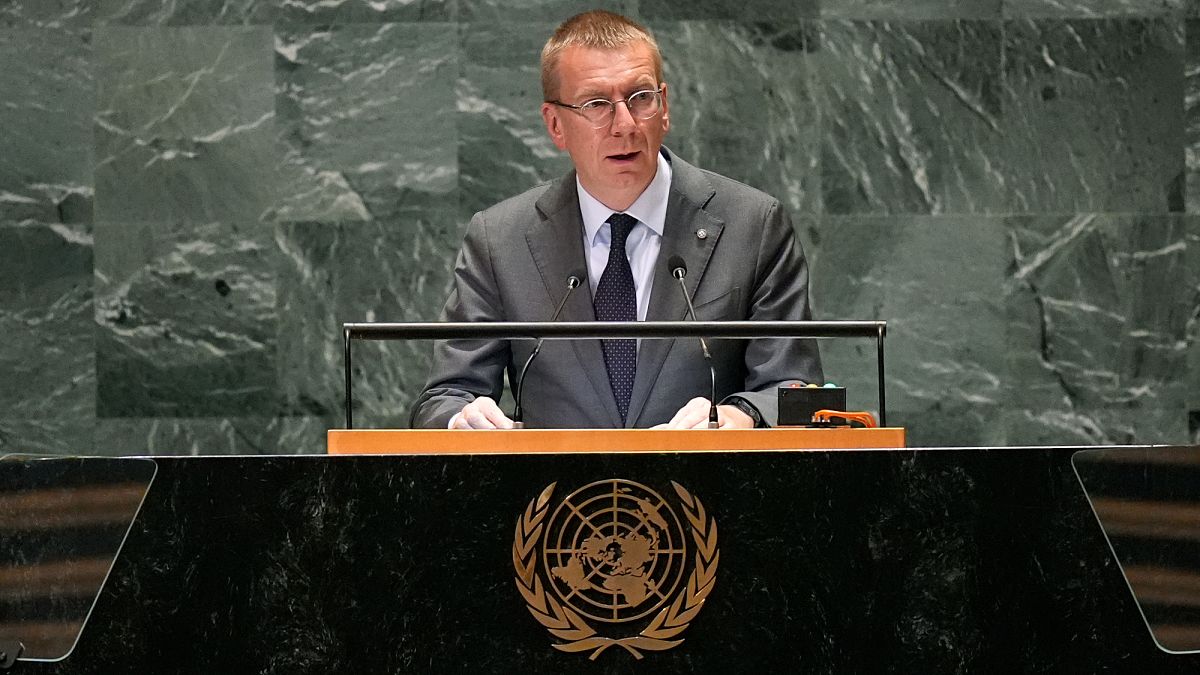ADVERTISEMENT
Ending reliance on energy supplies from Russia is a matter of “political will”, Latvian President Edgars Rinkēvičs said in an interview with Euronews.
Rinkēvičs urged Hungary and Slovakia to listen to US President Donald Trump in his call to end the European Union’s dependency on Russian oil and gas.
“Look at my own country, Latvia. Back in 2017, we were 100% dependent on Russian gas and oil. Today, in 2025, we are completely independent. We are buying oil and gas from different countries. If there is a political will, there is also going to be the result,” Rinkēvičs said.
The European Union is progressively giving up the use of Russian oil and gas. Since the beginning of Russia’s full-scale invasion of Ukraine in February 2022, the EU has cut crude oil imports from Russia from about 27% to 3%. Natural gas fall from roughly 45% to about 18-19%.
While most EU member states are in favour of this transition, Slovakia and Hungary remain firmly opposing to such a phase out.
During his address at the UN General Assembly on Tuesday, US President Donald Trump criticised the European Union for continuing to purchase Russian energy.
“Think of it. They’re funding the war against themselves. Who the hell ever heard of that one?,” Trump said.
Rinkēvičs is convinced that accelerating the phase-out of Russian oil and gas could have an impact on the war in Ukraine.
“Russia’s economy is not doing so well. If we push more when it comes to sanctions, if we stop buying oil and gas, then it could very much influence the whole situation [Russia’s war in Ukraine],” he told Euronews.
On sanctions, the Latvian president said a decision must eventually be taken on how to use frozen Russian assets “to support Ukraine with all kinds of weapons.”
The EU is examining ways to use the frozen assets, worth a total of €210 billion, to help fund Ukraine’s defence and post-war reconstruction.
Since a decision has not yet been taken, Rinkēvičs urged the EU to move forward, adding that it must also impose “secondary sanctions against countries that are helping Russia circumvent” existing measures.
In some cases, third countries are enabling the evasion of EU sanctions against Russia.
In January, the NGO Earthsight published the results of an undercover investigation, revealing that the EU systematically imported more than €1.5 billion worth of illegal Russian and Belarusian birch plywood since sanctions came into force in July 2022.
Security guarantees
A “coalition of the willing,” led by France and the UK, is working to develop a common approach on how to provide security guarantees for Ukraine after the war, including the possibility of deploying troops on the ground.
On the political process, Rinkēvičs said, “We are still not at the stage of making final decisions about providing real security guarantees”.
“If we decide to provide security guarantees, if we decide to send troops on the ground, we need US support,” he explained, “Not necessarily US troops on ground, but logistical support, intelligence support, other forms of support,” the president pointed out.
Rinkēvičs added that, while it’s probably too early to say, “A lot depends on how the political process will develop between Russia and Ukraine,” adding that he doesn’t “see any willingness on the part of Russian Federation to enter into the serious peace talks.”
